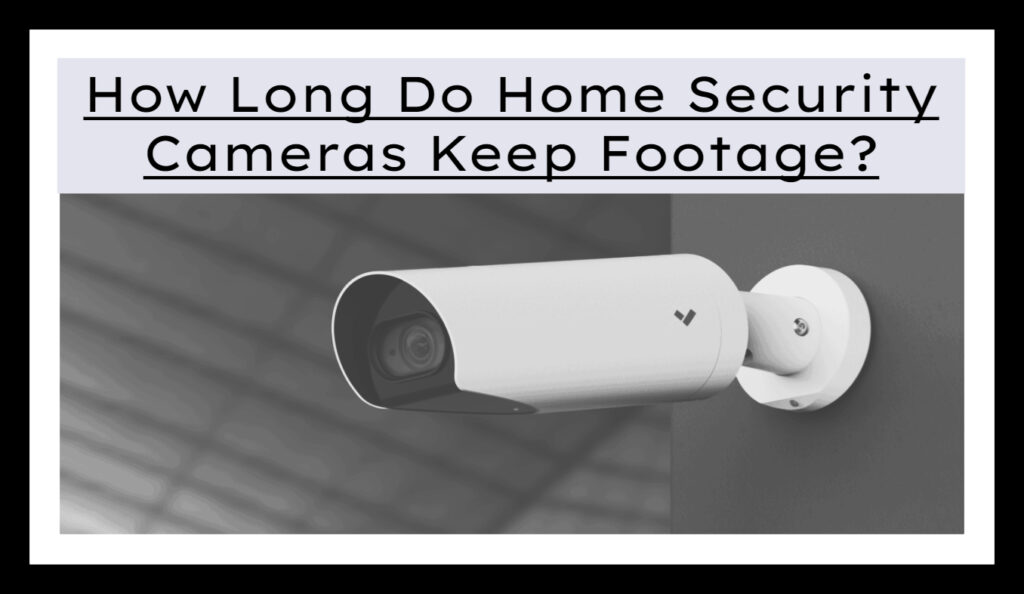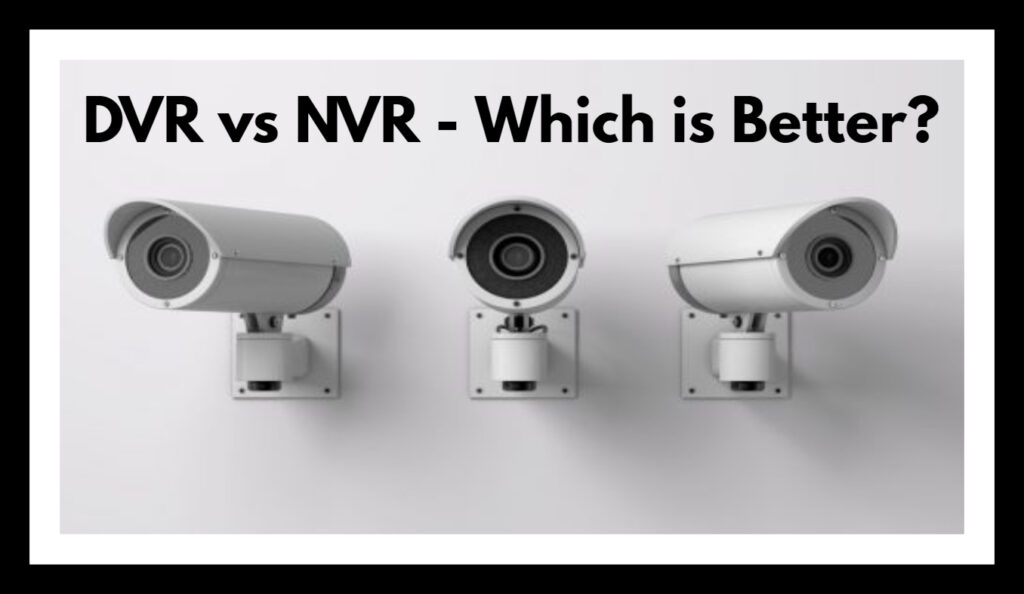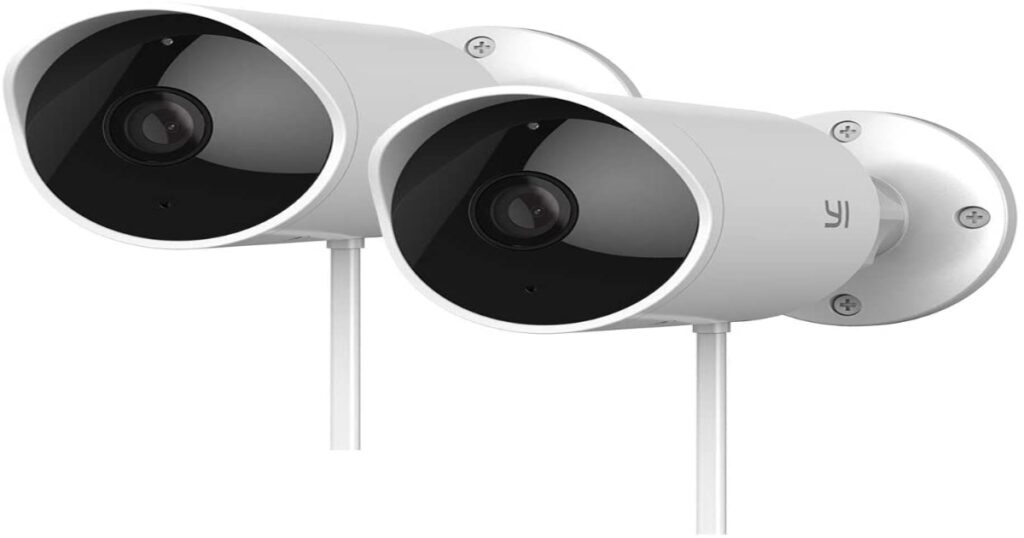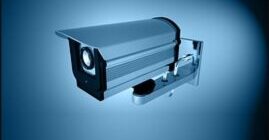Short answer: It depends on the company/brand. But usually, 10-90 days depending on needs. For example, supermarkets may need records for up to 3 months while home cameras may only require a max of 10 days record.
A lot of video surveillance companies are now integrating DVR and NVR recording systems (depending on the type and brand of the camera). The problem is that most people don’t ask how long these systems store footage!
We want to save you from disappointments that may come with footage loss. This article answers the question “how long do home security cameras keep footage?”

How Long do Home Security Cameras Keep Footage?
Home cameras are designed to store footage for approximately 10 days.
If you own a business that has cameras set up, you should buy one with a more extended storage period for your system. It will provide you with peace of mind knowing your footage will be there if you need it.
Additionally, your NVR should have scheduled recording periods so you are not filling up your storage space with more data than you need.
How is Video Footage Stored?
When looking at how long it takes for a camera to save its footage, the first thing you should know is that there are two main types of video storage systems – NVR and DVR.
Videos are stored in an NVR system using the H.264 codec. This is similar to how your online videos are stored on websites like YouTube, etc. The good thing about storing footage in the H.264 format is that you can store it for a long time without worrying too much about storage space running out.
On the other hand, DVR systems record video footage using MPEG2 (with some using MPEG4). While this is an older codec that uses compression, it does provide a huge advantage in terms of convenience. With MPEG2 you can run high-resolution videos without taking up too much storage space.
DVR vs NVR – Which is Better?
DVR or Digital Video Recorder is a standalone system that consists of a hard drive (or multiple drives), recording software, and the ability to access recorded video. For home use, these types of systems are harder to set up and cost more than NVRs. They are wired and have a lot of cabling work.
NVR stands for Network Video Recorder, which refers to systems that are not directly attached to the camera.
NVRs have a built-in hard drive and are connected to your computer network via an Ethernet cable or Wi-Fi. NVRs can record video onto themselves, but they can also send footage to another storage device, like an external HDD/SSD unit, or even a cloud storage solution like Dropbox, Google Drive, CrashPlan, and more.
NVR cameras are typically easier to set up. They can either be wired or wireless. Also, they are common with IP cameras, which are largely automated.
As such, NVR cameras will be the best bet for an average home user that does not have the time or knowledge to set up a DVR and requires a touch of technology in their system.

Do Home Security Cameras Delete Footage?
What happens to old footage in your home security camera? Well, if you’ve got a DVR, the footage is stored in the system’s hard drive. The older it gets, the chances are it will be overwritten.
NVRs on the other hand records video onto themselves and only deletes old data only when there is no storage space for new data to be saved and recorded. So if you’re looking for longer storage periods, consider purchasing an NVR system.
Do Home Security Cameras Record All The Time?
All home security cameras record footage all the time. Unless, of course, they are turned off.
The video you see comes from data recorded by your home security camera system which is why if you use wireless IP cameras, the video you’ll see might not be as good as what CCTV sees.
How Much Storage do Home Security Cameras Have?
Whether you buy a DVR or an NVR, your system will have some sort of storage – either built-in or through an external unit. This applies only to the video footage and not audio. Audio is crucial for commercial surveillance systems and home security cameras rarely record audio.
The amount of storage space varies from system to system. If you’re looking for a home security camera system, expect an average of 16GB storage or 64GB if you want long-term recording periods. When it comes to NVR systems, the more cameras you have, the more storage space you’ll need.
How Much Does Home Security Camera Footage Cost?
Price varies depending on the type of home security camera. A standard CCTV system will cost you anywhere from $99 to a couple of thousand dollars, depending on the number of cameras and other factors like storage space.
NVRs may be pricier as far as equipment goes, but it’s likely cheaper compared to DVR systems when you factor in the costs for installation and equipment.

How Long Do Home Security Cameras Keep Footage? Conclusion
Motion-activated home security cameras have a short battery life, which is why they are usually plugged into an outlet. But with most IP cameras, you can expect storage periods that can last up to 6 months or more depending on how often it records and the amount of data used per recording.
For most home security cameras, expect storage periods of up to 2-3 weeks depending on your home security camera system.
For DVR systems, the number of CCTV cameras you have will affect how long footage can be saved by your system. Standard 4 or 8 cameras for a standard video surveillance package will be anywhere from 1 to 10 days, but if you want long-term recording periods, expect storage of up to a couple of months.
For some home surveillance systems, it’s clear that security cameras can save the footage for weeks or even days depending on the type of system and the number of cameras used per package. Longer storage periods will be installed inside your NVR and this will be influenced by the number of cameras you have, your storage space needs, and the quality of your installation.
For CCTV systems, it’s better to opt for a DVR system if you want long-term storage because NVRs are designed mainly for IP cameras which only save footage up to 2 weeks or even less depending on how often it’s triggered for recording.

